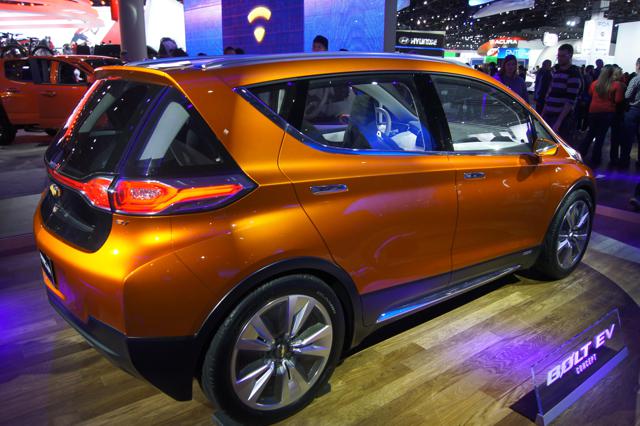I came across an interesting article about available 'future' tech for batteries which I wanted to share with the Chevrolet Bolt Forum.
Here is the full article:http://seekingalpha.com/article/3954736-future-batteries-tesla-model-3-chevy-bolt
There are technologies available today that can help cut up to half of the cost of manufacturing batteries. The theory presented in the article is that if Tesla with the Model 3, and/or GM with the Bolt EV can achieve enough volume, they will be able to implement these technologies and experience huge cost savings. These savings could bring an EV total cost lower than a traditional internal combustion vehicle.
Here are 3 of the technologies available:

And it's all summed up in their investment advice:
Here is the full article:http://seekingalpha.com/article/3954736-future-batteries-tesla-model-3-chevy-bolt
There are technologies available today that can help cut up to half of the cost of manufacturing batteries. The theory presented in the article is that if Tesla with the Model 3, and/or GM with the Bolt EV can achieve enough volume, they will be able to implement these technologies and experience huge cost savings. These savings could bring an EV total cost lower than a traditional internal combustion vehicle.
Here are 3 of the technologies available:
24M: 24M is a company that came out of MIT, and has as its CTO one of the founders of lithium ion batteries at Sony (NYSE:SNE). Their innovation is simple: They are using thicker electrode layers, up to 450 microns instead of the normal 60-100 microns. The interesting thing is the reduction in cost: Over 80% cost savings for the current collectors and separator, and over 60% for electrolyte and processing costs, for a total cost savings of about 65%. Think having your $35,000 Bolt go 700 miles on a charge instead of 300.
DexMet: Everyone knows there is too much metal in a battery, and that it is heavy. These guys are expanding the foils to make what is essentially a screen of wire, which they will then coat to form the anode and cathode. With less metal, there will be increased safety (smaller chance of a hard short) and lighter weight. The cost savings comes from being able to do a double-sided coat in one pass, which will cut the coating process time in half. It will also reduce the soaking time with electrolyte.
Buhler: Buhler makes equipment to mix food in an extrusion process. They have applied this to lithium ion batteries to mix the materials, and have proven a process to mix in-line, replacing a 6-7 hour batch mixing process. The time is faster, the uniformity better, with about 60% less energy and 30% of the CAP-EX requirements, plus much lower work-in-process materials.
Oak Ridge National Lab: Oak Ridge, along with others, have developed water-based binders that can eliminate the cost of using expensive organic solvents for coating, and the cost and CAP-EX of the recovery process also. The potential is to take a significant chunk out of the coating costs.

And it's all summed up in their investment advice:
What does it mean for you, the investor?
There is a simple bet you can make, and use your judgment and talk with your friends. Costs aside, EVs provide a better drive, but today they are limited in range. The Bolt and Model 3 will make huge strides against that. If the range and costs are fixed, then as an EV owner, I can say there will be very few EV drivers who will ever buy an ICE car again. There is simply no reason, unless you love the smell of gasoline, oil changes, the way the car shakes and gurgles when you turn it on and trips to the repair shop.
